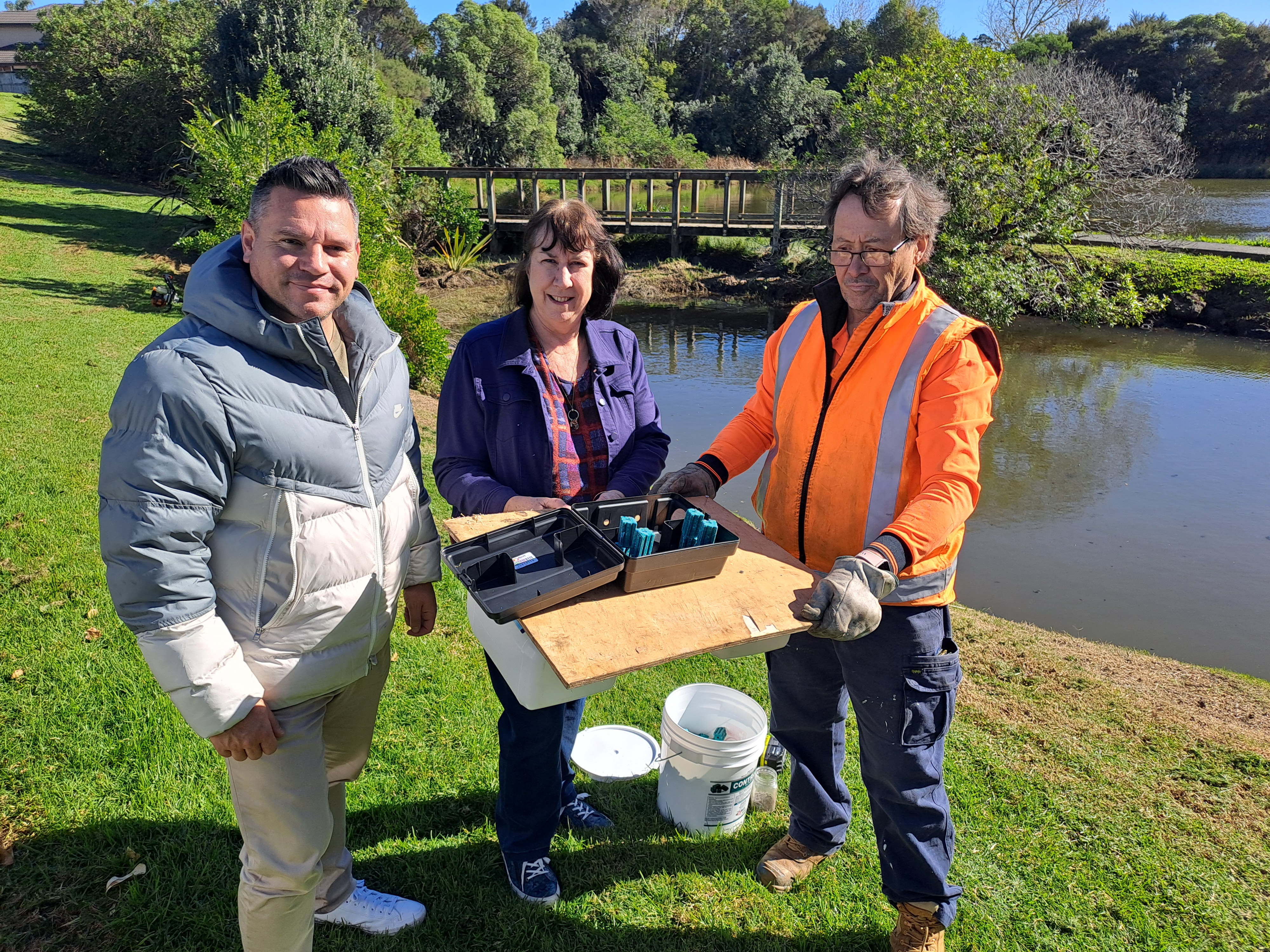The battle against Wattle Downs rats is going to sea.
Campaigners have been catching rats on land for almost 20 years, but now they are set to launch baited rafts in the area’s mangroves.
Manurewa Local Board recently gave Pest Free Wattle Downs a grant to fund 50 rafts.
Board chair Matt Winiata says a lot of areas target rats, which prey on native birds and are notorious nest raiders, but he’s not sure many carry out operations at sea.
“Wattle Downs resident Row Robinson is the driving force behind the group. He’ll probably figure out a way to attack from the air too, then he’ll have air, land and sea forces.”
Supported by the Wattle Downs Residents and Ratepayers Association, the group wants to target the northern shores and Takirangaranga Paa site areas.
Robinson says removing rats and other pests reduces the chance of human contact.
“Our main aim is to see birds and lizards thriving. We know rats are coming into properties because baits are still being taken. They’re coming from somewhere, and the obvious place is the mangroves.”

Manurewa Local Board chair Matt Winiata and member Heather Andrews met with Wattle Downs resident Row Robinson to see his rat navy up close.
Robinson says the group measures success by the lack of baits being eaten, or lack of catch, but wants a more scientific approach. “We want to engage Niwa to measure the status of the mudflat and beach life, then to do yearly studies to measure success.”
Manurewa-Papakura Councillor Daniel Newman says he’s been impressed by the No 8 wire Kiwi ingenuity being employed.
“Row started 16 years ago in a backyard with half a dozen traps and bait stations and then a few years ago stepped the project up, increasing to 30 stations, then 50, then 100, and now 250-odd, all land-based, including several on my own property.
"The project has installed wasp baits and pheromone traps for apple moth, but despite its successes Wattle Downs still has a rat population because it’s surrounded by sea.”
Robinson says his bait rafts will rise and fall with the tide and he hopes to have as many as a hundred in place.
“We need to establish they work in rough weather, and that there’s a rat population in the mangroves. But we’ll know that if the baits get eaten, in which case we’ll launch more.
“Eventually we might have as many on the water as we have on land.”
Stay connected
Sign up for your Local Board E-news and get the latest news and events direct to your inbox each month. Or follow us on Facebook


